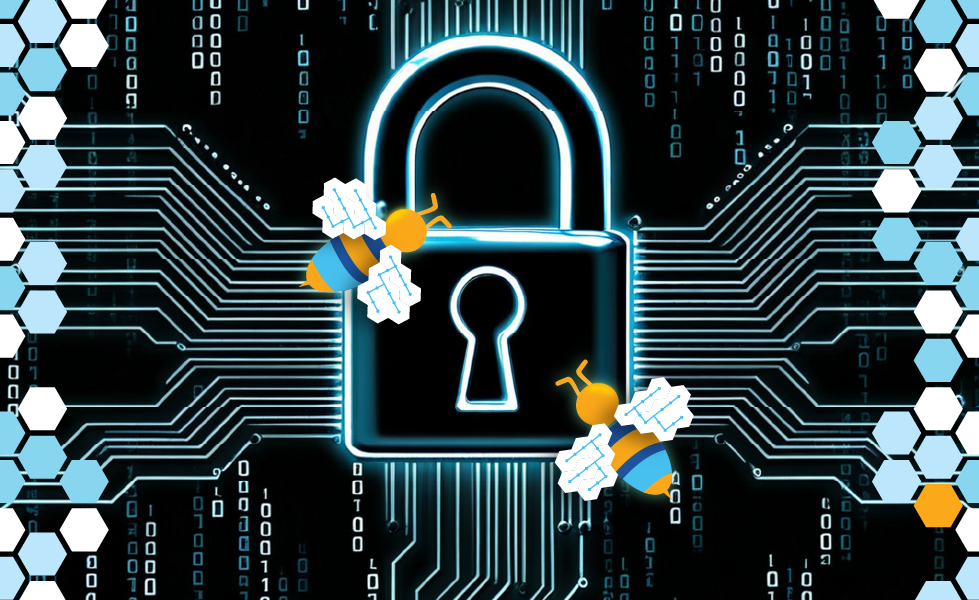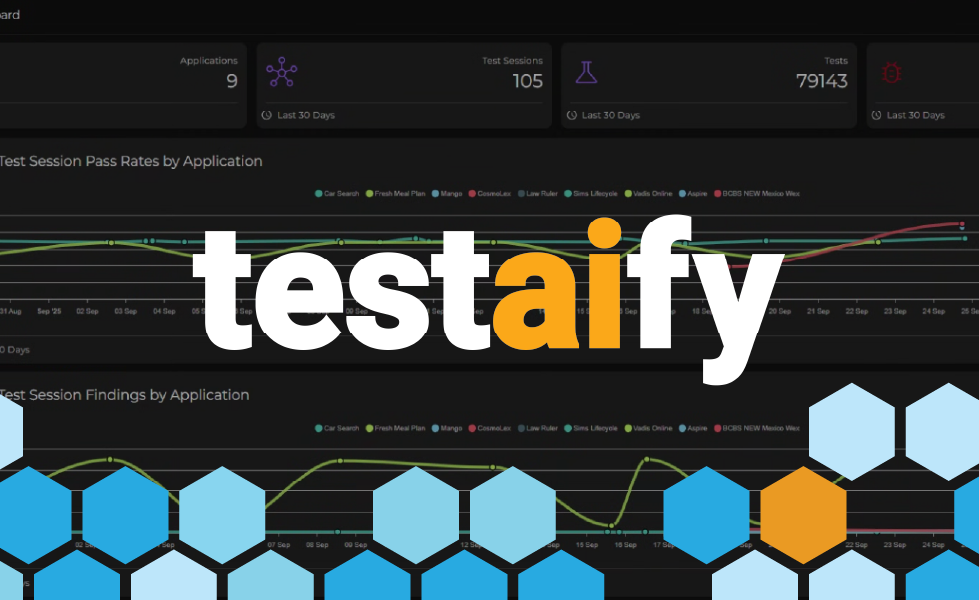Security Meets DevOps at Testaify
Security runs through every stage of Testaify's AI-led testing, from environment isolation and encryption to safe synthetic data—without slowing DevOps.
TABLE OF CONTENTS
Balancing agility with protection in today’s DevOps-driven world
At Testaify, security is foundational to how we build, test, and deliver software. As an AI-native autonomous software testing platform, we automate every stage of the testing lifecycle—from discovery to design, execution, and insight generation. This level of automation demands a rigorous and thoughtful approach to data protection, infrastructure isolation, and testing safety.
In this post, we will outline the key security practices and recommendations that guide our work, particularly in the context of small, agile teams operating with speed and accountability.
Controlled Access to Production and QA Environments
Access to production systems is tightly controlled, but in a way that supports agility. Engineers who require access are added to a specific role that grants permissions across both QA and production environments. This approach is not done lightly and is restricted to those who need it to perform their work. We are a small team, and we do not have separate operations roles on the team yet.
Importantly, production and QA environments are fully isolated at the network level, each hosted in separate AWS Virtual Private Clouds (VPCs). This configuration ensures that even when access is granted to both, the systems themselves remain segmented, reducing the risk of unintended interactions between testing and live environments.
This model reflects a DevOps-aligned approach that values team enablement, automation, and operational responsibility. For a fast-moving engineering team, security must be integrated into workflows—not enforced through excessive friction.
Testing with Synthetic Data: Best Practices for Testaify Customers
Testaify is built to deliver autonomous testing across your development lifecycle—but safe, effective testing also requires thoughtful practices around test data. To protect production systems and customer information, we strongly recommend the following best practices when using Testaify:
1. Avoid Using Production Data for Testing
Customers should not use customer production databases or customer data for testing purposes within Testaify. Even with limited access, there is a risk of data exposure or performance impact. Production data should remain in production.
2. Use Synthetic or Anonymized Data
Testing should rely on synthetic data—artificially generated records that simulate real-world scenarios without containing any sensitive or personally identifiable information. Testaify generates synthetic data to mimic real usage patterns. We recommend that customers use Testaify on test accounts with synthetic seed data.
In some cases, anonymized data (e.g., scrubbed or obfuscated versions of production data) may be acceptable, provided it meets compliance and privacy standards. However, synthetic data is preferred for both safety and repeatability.
3. Test in Dedicated QA Environments
All test execution should be conducted in a dedicated QA environment. These environments should be separate from production in terms of both network infrastructure and data access.
Testaify supports this setup by allowing seamless integration with your QA or staging systems, ensuring test coverage without introducing instability into your live environment.
4. Use Isolated Test Databases
If using a production environment is unavoidable, we recommend using tagged test accounts that are monitored and can be reset easily. These accounts should never include real user data.
5. Monitor for Data Accumulation and Resource Strain
Even synthetic data can accumulate over time and affect system performance. Monitor test environments for large volumes of test data, orphaned records, or excessive resource consumption. Periodically clean and reset test datasets to maintain system performance and test accuracy.
By following these best practices, Testaify users can maximize test coverage and quality insights while minimizing risk to their production systems and customer data. Synthetic data, proper environment segmentation, and test database hygiene are foundational to secure, effective autonomous testing.
Data Encryption and Logical Isolation
Security also extends to how we store data throughout the platform. For data at rest, all key services—including Amazon DocumentDB, Amazon MSK, Amazon MQ, and Neptune—are configured to use encryption at rest. This configuration ensures that even in the unlikely event of unauthorized access to underlying storage systems, customer and platform data remain protected.
Our platform is designed as a multi-tenant architecture, where data from multiple customers coexists in shared infrastructure. To maintain privacy and security, data is logically isolated by tenant. All access is strictly scoped, and no tenant can view or affect another’s data.
Key Security Practices and Recommendations
Here is a summary of the current practices and recommendations that define our security posture:
- Environment Isolation: Testaify’s QA and production systems are hosted in separate AWS VPCs. Access is role-based and limited to trusted engineers.
- Synthetic Data for Testing: Customer data should not be used in conjunction with Testaify. Synthetic data is the default for all test cases.
- Test Outside Production: Tests should run in QA environments. If tests must run in production, they target test-specific accounts that are actively monitored.
- Encryption: All key services encrypt data at rest.
- Tenant Isolation: Multi-tenant data is logically isolated and access-controlled by tenant, ensuring each customer’s data remains private and protected.
Built for Scale and Security
As Testaify continues to evolve, our commitment to security grows with it. Our approach is grounded in pragmatic DevOps principles, but always with an eye toward strong safeguards, proactive monitoring, and minimal risk exposure.
By combining secure infrastructure, intelligent automation, and best practices around access, testing, and data management, we’re able to deliver an autonomous testing platform that teams can trust—without slowing them down.
For questions about our security policies, architecture, or recommendations, reach out to our team or explore our documentation.
About the Author
 Testaify founder and COO Rafael E. Santos is a Stevie Award winner whose decades-long career includes strategic technology and product leadership roles. Rafael's goal for Testaify is to deliver comprehensive testing through Testaify's AI-first platform, which will change testing forever. Before Testaify, Rafael held executive positions at organizations like Ultimate Software and Trimble eBuilder.
Testaify founder and COO Rafael E. Santos is a Stevie Award winner whose decades-long career includes strategic technology and product leadership roles. Rafael's goal for Testaify is to deliver comprehensive testing through Testaify's AI-first platform, which will change testing forever. Before Testaify, Rafael held executive positions at organizations like Ultimate Software and Trimble eBuilder.
Take the Next Step
Testaify is in managed roll-out. Request more information to see when you can bring Testaify into your testing process.



